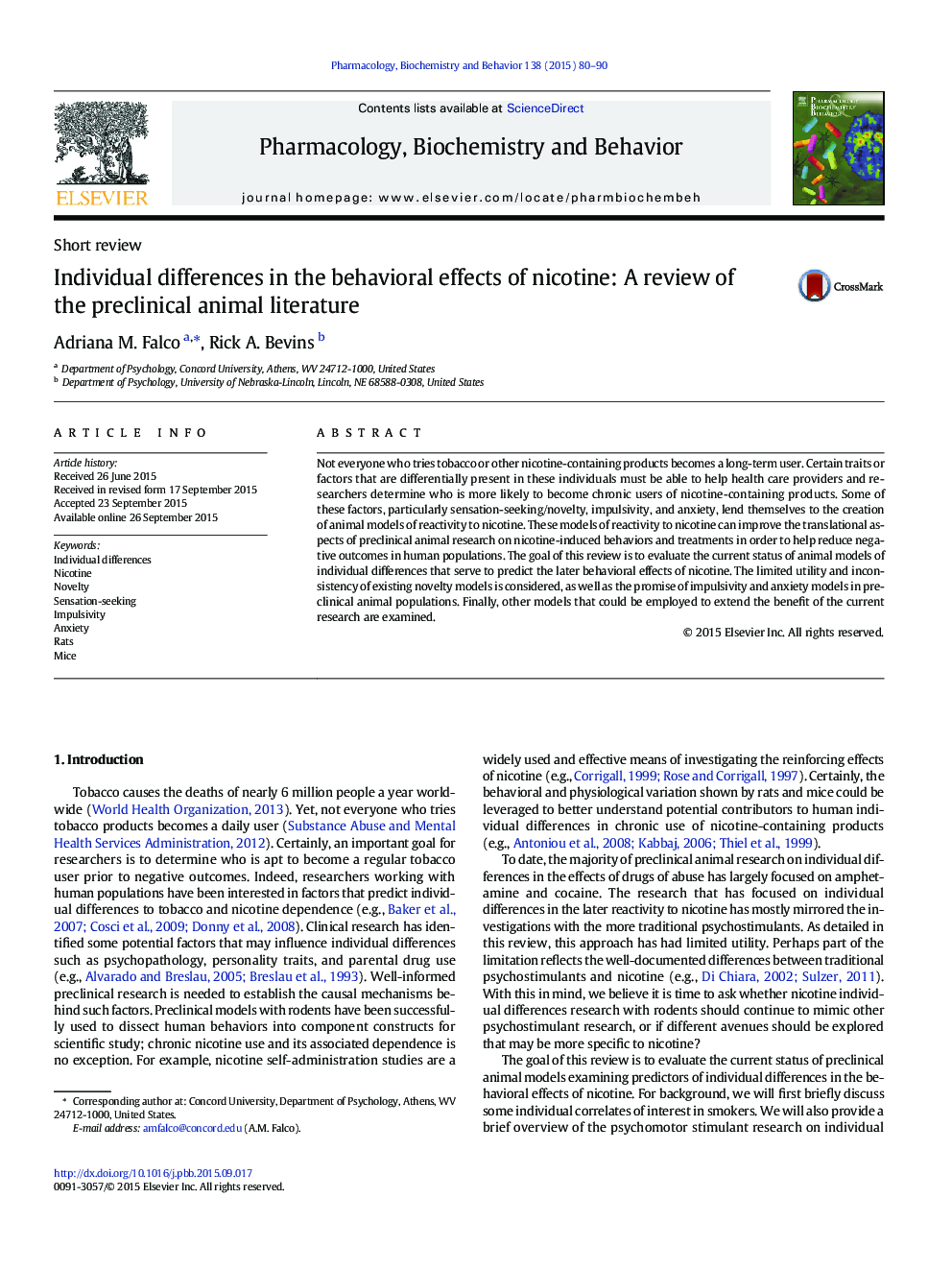| Article ID | Journal | Published Year | Pages | File Type |
|---|---|---|---|---|
| 2012704 | Pharmacology Biochemistry and Behavior | 2015 | 11 Pages |
•Rodent models can be developed to understand human individual differences in drug abuse.•Novelty-seeking is an inconsistent predictor of nicotine behaviors in rodents.•Impulsivity and anxiety models show promise as predictors of nicotine behaviors.
Not everyone who tries tobacco or other nicotine-containing products becomes a long-term user. Certain traits or factors that are differentially present in these individuals must be able to help health care providers and researchers determine who is more likely to become chronic users of nicotine-containing products. Some of these factors, particularly sensation-seeking/novelty, impulsivity, and anxiety, lend themselves to the creation of animal models of reactivity to nicotine. These models of reactivity to nicotine can improve the translational aspects of preclinical animal research on nicotine-induced behaviors and treatments in order to help reduce negative outcomes in human populations. The goal of this review is to evaluate the current status of animal models of individual differences that serve to predict the later behavioral effects of nicotine. The limited utility and inconsistency of existing novelty models is considered, as well as the promise of impulsivity and anxiety models in preclinical animal populations. Finally, other models that could be employed to extend the benefit of the current research are examined.
